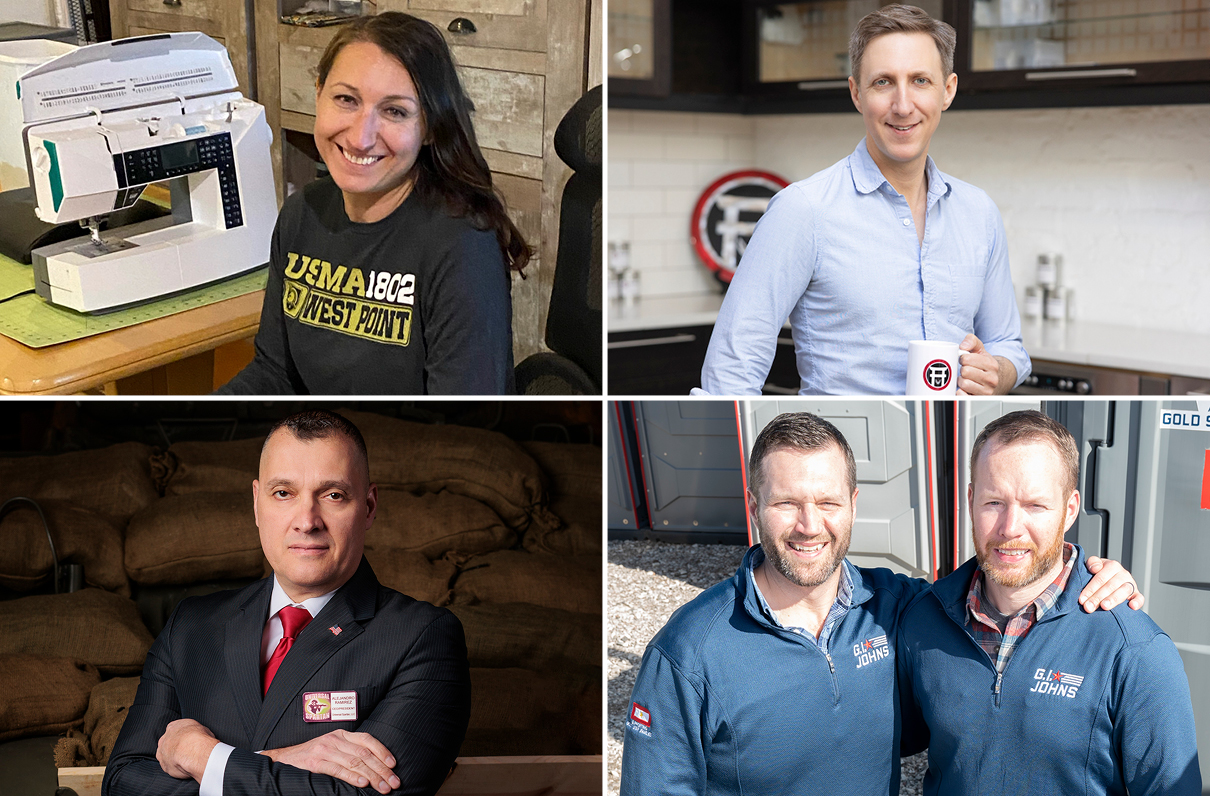(This article by Kathie Rowell originally appeared in the May 2023 issue of Military Officer, a magazine available to all MOAA Premium and Life members. Learn more about the magazine here; learn more about joining MOAA here.)
Walmart. FedEx. GoDaddy. Nike. Some of the nation’s largest and best known companies were founded by veterans.
It’s possible another giant could grow from a new generation of veterans who are creating companies with goals of offering a quality product or service, providing for their families, leaving a legacy, and extending a helping hand to other former servicemembers through employment, mentoring, and financial contributions.
[JULY 20 MOAA WEBINAR: Small Business Ownership Tools and Resources]
Veterans are about 45% more likely to start their own businesses than the general public, according to the U.S. Small Business Administration (SBA). A multitude of resources stand ready to help them on their journey, including MOAA, Bunker Labs, the SBA Office of Veterans Business Development, the Institute for Veterans and Military Families, the National Veteran-Owned Business Association, the National Veteran Business Development Council, and the VA’s Veteran Entrepreneur Portal, to name a few.
Future entrepreneurs can take inspiration from these veterans who made the leap and are sharing their journey into business ownership.
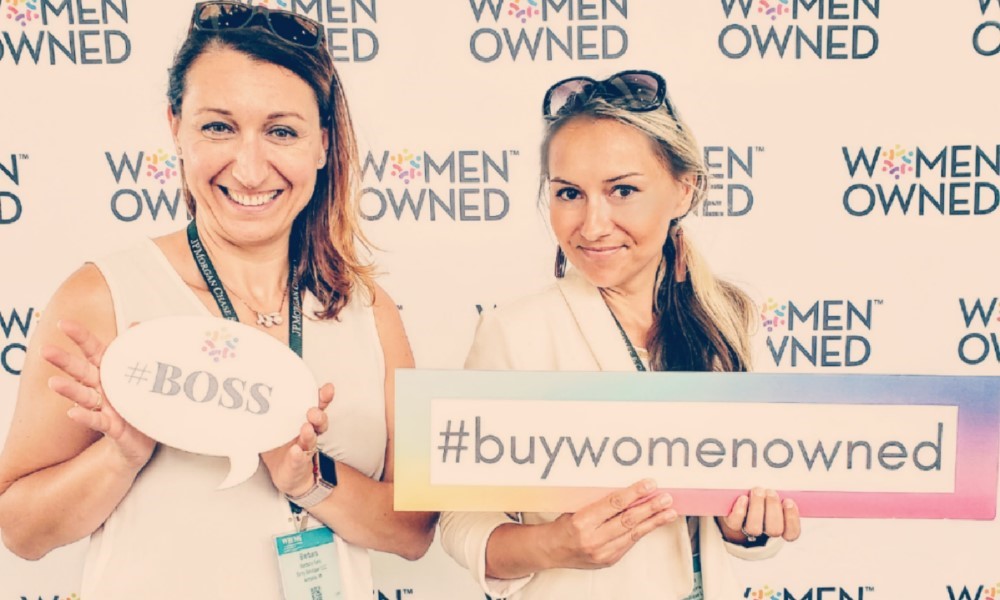
Maj. Barbara Kent, USA (Ret), left, started Birdy Boutique in 2014 with her sister, Joanna Serra, right. (Photo courtesy Maj. Barbara Kent)
Sewing Project Starts Entrepreneurial Path
When Maj. Barbara Kent, USA, was medically retired in 2011 after a 12- year career as a military police officer, deploying to Kosovo and Iraq, she found work in government contracting.
It took only 15 months to realize it wasn’t the job for her.
“I found the work mundane, as it did not allow me to use any initiative or original thought,” she said. “I wanted to find another way that would allow me to contribute and do something more impactful, something that matters to me.”
The idea for her business grew from a request from her sister — and eventual business co-owner. Joanna Serra asked Kent to sew for her niece a car seat poncho, a wearable piece of fabric to keep children warm in their car seats.
“This sparked so many ideas for us that I never looked back,” Kent said. “Once we put a few up for sale, they sold very quickly. We continued our growth from there while expanding and evolving.”
Now Birdy Boutique, founded in 2014 and headquartered in Michigan, offers education blankets and learning tapestries — textiles featuring sight words, world maps, solar system names, state facts, etc., as well as first-birthday outfits and the original car seat ponchos.
Upcoming MOAA Transition and Career Events
Kent, a graduate of the U.S. Military Academy at West Point, N.Y., began her business journey by teaching herself about sewing and e-commerce sales. She is currently taking part in the yearlong JPMorgan Chase CEOcircle training through Bunker Labs.
She believes her military experience helped her succeed by teaching her to handle discomfort, solve problems, and make decisions under pressure as well as to manage, prioritize, delegate, and seek help when needed — traits she needs as she helps run the business from Germany, where her active duty husband is stationed.
[RELATED: 5 Ways Women Veterans Can Get Help Starting or Expanding a Business]
Kent believes veterans who want to start a business should jump right in.
“Start now,” she said. “Don’t wait until you have it all figured out because that usually doesn’t happen. Figure it out along the way. There are endless resources for veterans, and people really want to help. You just have to ask.”
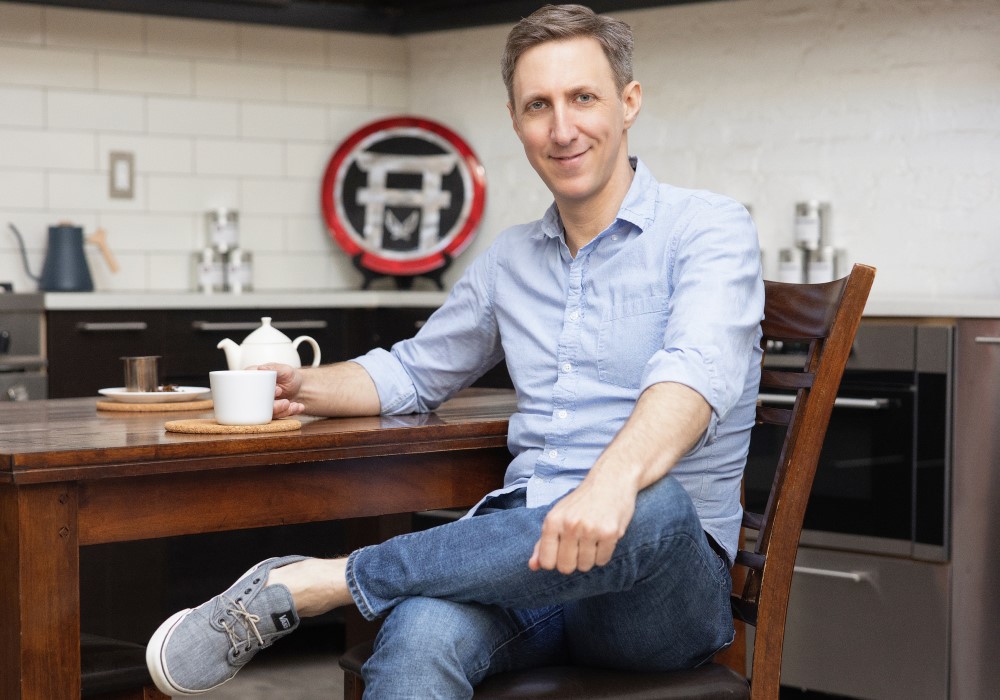
Former Army Maj. Brandon Friedman discovered a love for tea while serving as an infantry officer in Iraq and Afghanistan. (Photo by Daniel Motta)
Sign of Peace Through Tea
Former Army Maj. Brandon Friedman, a native of Louisiana, where sweet tea reigns supreme, hated the beverage — until he grew to love tea culture while serving combat tours as an infantry officer in Afghanistan and Iraq. More than a decade after his 2000-04 service, his experiences with hot tea there led him to create Rakkasan Tea Company, a niche supplier located in Dallas.
Friedman said nothing was done with locals in Iraq or Afghanistan unless it was over tea.
“It was nice,” he said. “It sort of became this oasis amid all the chaos of combat, where you could actually sit down for a few minutes with people there and be sort of a normal human and relax for a little bit over tea. I came to associate tea with friendship and being social and good conversation.”
In 2017, after focusing on a career that included time at the VA and at the U.S. Department of Housing and Urban Development in Washington, D.C., Friedman and fellow veteran/former Green Beret Terrence Kamauf founded Rakkasan. The word means “parachutist” in Japanese and is the nickname of a unit in the 101st Airborne Division in which the two served.
Their experiences in combat zones also influenced their business model. Instead of offering easily attainable teas from places like China, Japan, and India, Rakkasan imports teas from artisan farmers in post-conflict countries such as Rwanda, Vietnam, Laos, and Myanmar.
“We’ve seen the toll that war takes on communities, and we wanted to give those people an opportunity,” Friedman said.
[RELATED: How to Manage the Transition ‘UNs’]
And because tea is like wine —influenced by the terroir in which it’s grown — sourcing teas from these countries allows Rakkasan to offer unique flavors.
Friedman believes his military experience gave him the confidence to strike out on his own. He gives back to the military community by hiring veterans and supporting organizations like the Pat Tillman Foundation and Team Rubicon.
He finds satisfaction in running a company that does well by doing good.
“We’ve been able to create a company that helps people and provides a product that other people enjoy,” he said.
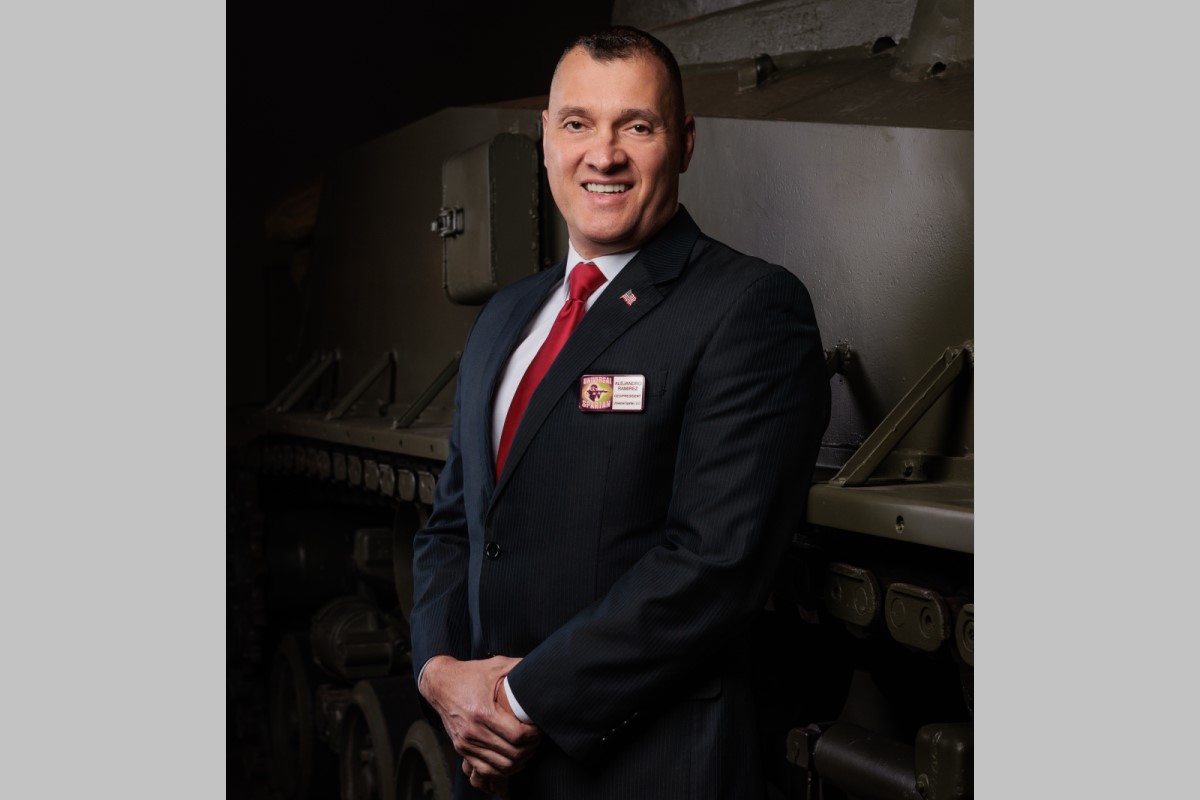
Maj. Alejandro Ramirez, USA (Ret), says his military background has been invaluable when running his company, Universal Spartan. (Photo by Jennifer Schoenegge Photography)
'All Veterans ... Want to Give Back'
Maj. Alejandro Ramirez, USA (Ret), started a defense contracting business to create a legacy for his children and to help other veterans and active duty servicemembers by providing employment, training, and quality products that can help keep them alive, save them money, or allow them to do their job better.
“That makes me want to keep on doing what I’m doing every day,” he said.
Ramirez enlisted in the Army in 1991. He later attended Officer Candidate School and served as a Delta scout; armor officer; and reconnaissance, surveillance, and target acquisition commander before retiring in 2013.
He started Universal Spartan as an online business, focusing on military/tactical products, but he wasn’t ready to make a full-time commitment until after he had worked for Northrop Grumman for a few years.
In 2016, he went full time and began to expand. Now, Universal Spartan, headquartered in Vine Grove, Ky., sources tactical, military, medical, IT, industrial, and electrical equipment for the federal government, focusing on providing “the right product for the right reason at the right price,” Ramirez said.
[RELATED: Don’t Forget to Nurture Your Network]
While in the military, he earned a bachelor’s degree in occupational training development and a master’s degree in human resources. For business training, he began attending SBA events and then participated in an Institute for Veterans and Military Families boot camp. It was there he found an investor/mentor/friend who has helped build the business.
His experience led him to create the nonprofit Kentucky Veterans’ Business Alliance, with the goal of empowering other veterans to start their own businesses or find a job.
“As a veteran, selfless service is instilled in you, your leadership strengths are instilled in you, so at some point, all veterans, not just me, want to give back,” he said.
Ramirez believes his military background has been invaluable to his success.
“When you’re in the military, you’re instilled with the values, leadership traits, discipline, duty, integrity,” he said. “When you get out, all that transforms to being a successful entrepreneur.”
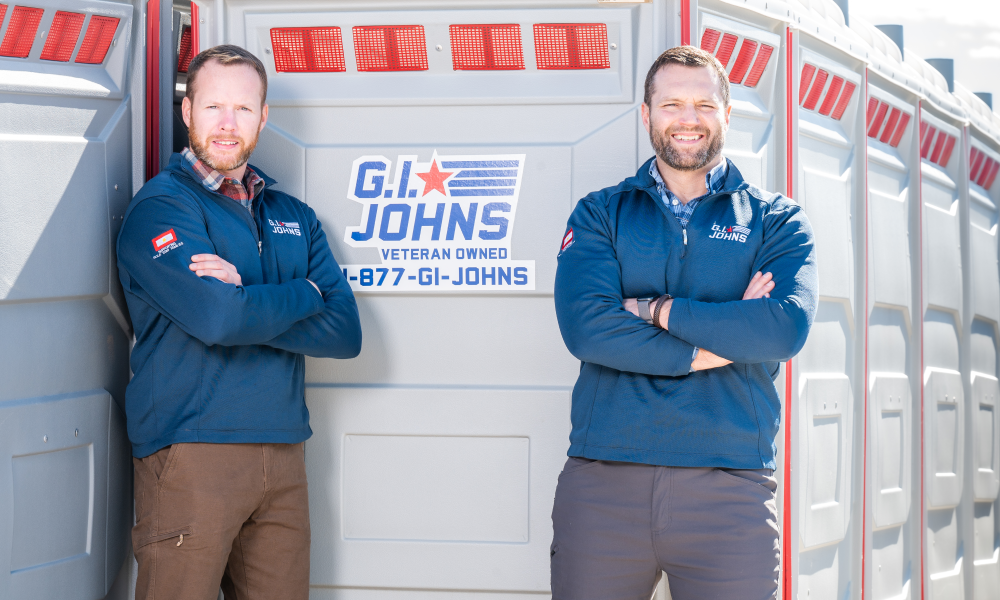
Former Marine Corps Capts. Patrick Ford and Will McLoughlin started G.I. Johns in 2020. (Photo by Raphael Talisman)
Former Marines Offer Sanitation Solutions
With a business name that makes people smile and a commitment to take a dirty job and do it better than anybody else, former Marine Corps Capts. Will McLoughlin and Patrick Ford, along with Mark Christo, father of a Marine, have taken a company from startup to success.
In 2022, they donated $100,000 to Gold Star families through the Travis Manion Foundation.
G.I. Johns has been providing portable restroom rentals in Connecticut, Maryland, Virginia, and Washington, D.C., since 2020. McLoughlin and Ford’s partnership began when they met as infantry officers.
Both entered the military after spending several years working in the civilian sector. McLoughlin served seven years on both active and reserve duty and then took a civilian job in financial technology. Ford served nine years on active duty.
As their friendship grew, they began to talk about eventually starting a business together. When Ford decided to separate, McLoughlin was ready to jump from his job to business ownership.
[RELATED: Own a Small Business? Apply for Veteran Certification Via a New Federal Program]
“We had read about this overlooked demand for service-related industries, where people don’t want to do the work. It’s hard. The perception of it is that it’s gross, so it just seemed like a really good idea.”
A mutual friend put them in contact with Christo, who had also been toying with the idea of a portable restroom business, and a partnership was formed.
The Mid-Atlantic operation started with McLoughlin and Ford, one truck, and 56 toilets. Now, the Mid-Atlantic and Connecticut locations have a total of more than 50 employees, 26 trucks, and nearly 3,000 toilets.
McLoughlin credits their civilian-sector experience in finance, application of their practical infantry officer training, and the willingness to work hard for their success.
From the beginning, the partners committed to helping other veterans: “We’re going to start this business. We’re going to grow this business. We’re going to expand this business, and when we expand this business, we’re going to go find other veterans,” McLoughlin said.
Kathie Rowell is a writer based in Louisiana.
Military Officer Magazine
Discover more interesting stories in MOAA's award-winning magazine.
